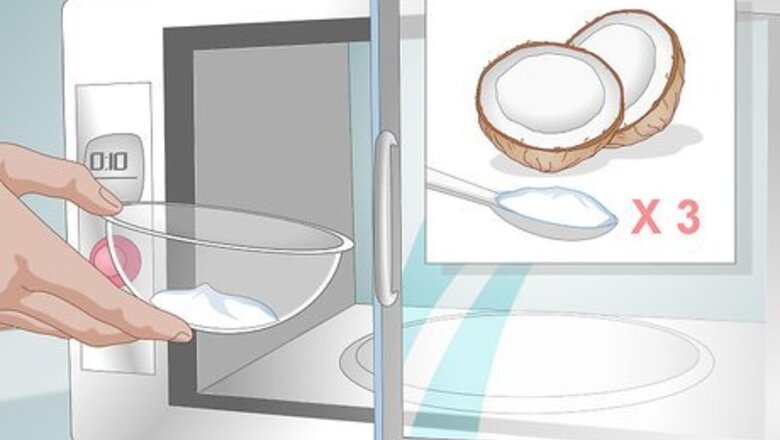
views
Using Coconut Oil and Bentonite Clay
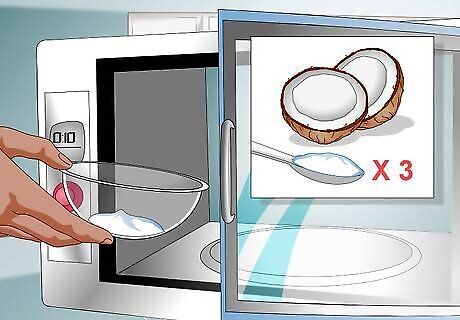
Melt 3 tablespoons of coconut oil in a small, microwave-safe bowl. The coconut oil will give the toothpaste a smooth, thick consistency. It is also naturally antibacterial, and may help fight bad breath and cavities. You can melt the coconut oil in the microwave or in a double-boiler. Melting the coconut oil first will help the rest of the ingredients mix into it more smoothly. To melt it in the microwave: heat the coconut oil for 10 seconds, then give it a stir. If the coconut oil still isn't melted, heat it for another 5 to 10 seconds. To melt it in a double-boiler: fill a small saucepan with 1 to 2 inches (2.54 to 5.08 centimeters) of water, and place a glass bowl on top. Put the coconut oil into the bowl, and stir it until it melts.
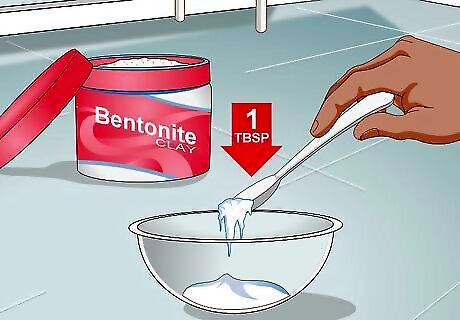
Stir in 1 tablespoon of bentonite clay. Bentonite clay acts as a binder. It may also help remove food residue from around your dog's teeth and gums. Bentonite clay may react with certain medications. If your dog is taking any medications, consult your veterinarian first.
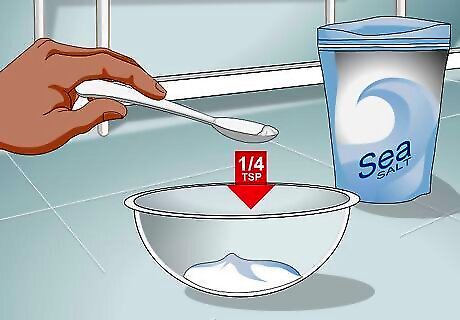
Stir in ¼ teaspoon of finely-ground sea salt. Sea salt is gently abrasive, so it will help scrub your dog's teeth clean. It may also help neutralize any bacteria-forming acids in your dog's mouth. This can help prevent bad breath and tooth decay. Make sure that the sea salt is finely-ground.
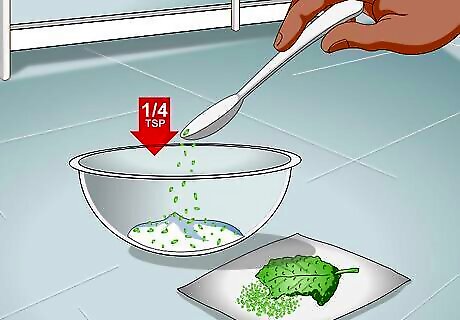
Consider adding ¼ teaspoon of finely-ground dried mint or parsley. These will freshen up your dog's breath. To help distribute the herbs more evenly throughout the toothpaste, grind the herbs up using an herb grinder, coffee grinder, or a mortar and pestle. If you are using a coffee grinder, make sure that it is perfectly clean. It would be even better to use one reserved specifically for grinding herbs. Coffee is toxic to dogs.
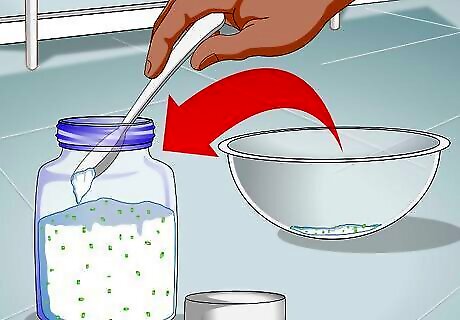
Scoop the toothpaste into a small, glass jar with a tight-fitting lid. Avoid using a plastic jar, as it can leach chemicals into the toothpaste overtime.
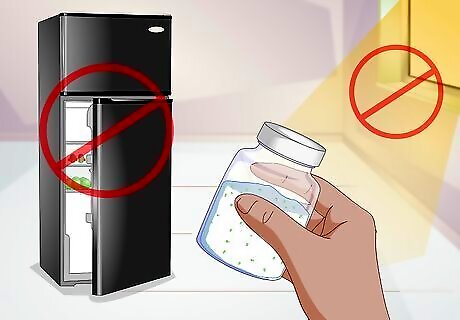
Wait for the toothpaste to harden again before you use it. Store the toothpaste away from heat and light. Avoid storing it in the fridge, however, or it will harden too much. The toothpaste should last a few months. If it starts to look or smell strange before that, however, toss it out. If the toothpaste becomes too hard to scoop, place the jar into a small bowl filled with hot water for a few minutes, then stir the toothpaste.
Using Coconut Oil and Turmeric
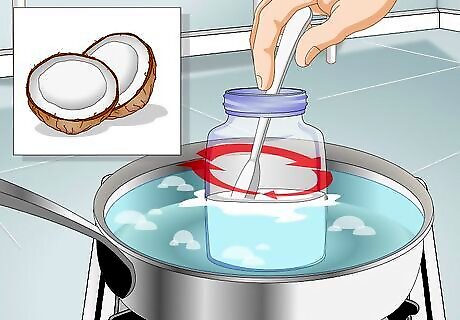
Melt 1 cup (225 grams) of coconut oil in a hot water bath. The coconut oil will act as a base for your toothpaste. It is also naturally antibacterial, so it can help fight against cavities and bad breath. To melt the coconut oil: Put the coconut oil into a jar, then place the jar into a saucepan. Fill the saucepan with enough water so that the water is level with the oil. Set the heat to medium, and stir the coconut oil until it melts. Take the jar out of the saucepan once the coconut oil has melted.
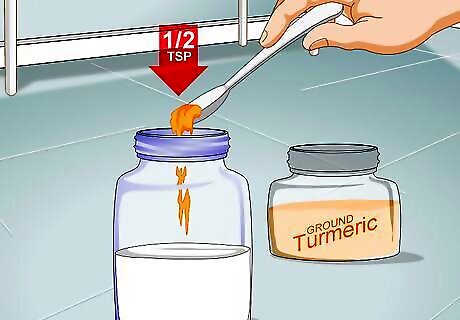
Add ½ teaspoon of ground turmeric. Turmeric is naturally antibacterial, so it can help kill off bacteria. It is also a natural whitener. It may also help prevent plaque.
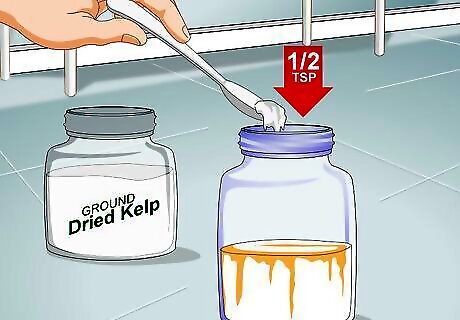
Add ½ of ground, dried kelp. Kelp helps remove plaque. It is also naturally antibacterial and filled with beneficial minerals.
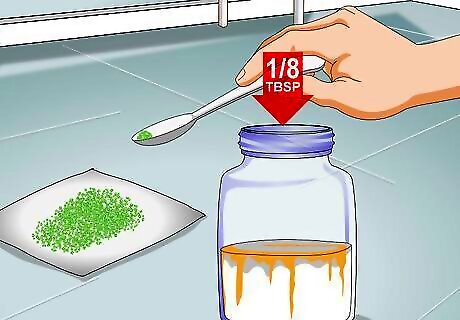
Add ⅛ tablespoon of dried parsley flakes. Parsley can not only help freshen up your dog's breath, but it can help kill of bacteria in his or her mouth. It is full of vitamins and minerals, which may help promote your dog's dental health. If you'd like, you can grind the parsley flakes up further using an herb grinder, coffee grinder, or a mortar and pestle. If you plan on using a coffee grinder, make sure that it is clean. It would be better to use one reserved for grinding herbs, as coffee is toxic to dogs.
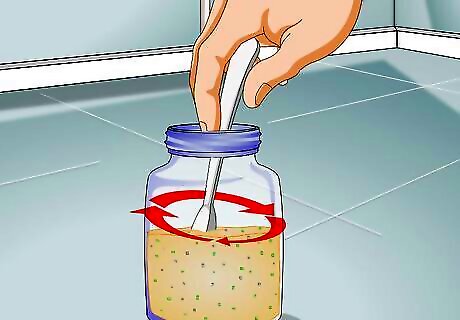
Stir the ingredients together until everything is evenly combined. At this point, you can pour the toothpaste into a clean jar, or you can leave it in its current jar. If you plan on pouring the oil into a new jar, consider pouring it into smaller jars so that it will be easier to use. The jars must be made out of glass, as plastic ones can leach chemicals over time.
Using Coconut Oil and Baking Soda
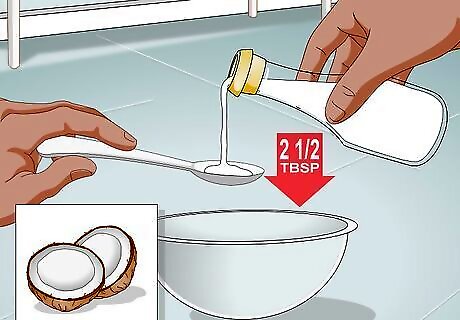
Place 2½ tablespoons of coconut oil into a small bowl. The coconut oil will serve as the base for your toothpaste. It is also natural antibacterial, and it may help ward off cavities and bad breath.
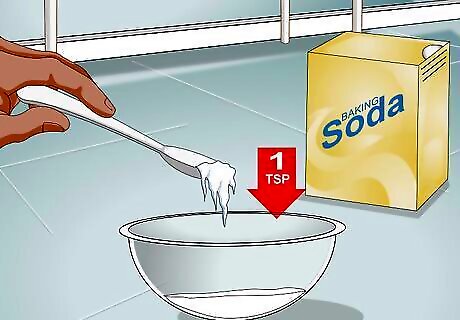
Add 1 teaspoon of baking soda. Baking soda is mildly abrasive. It will help gently scrub away tartar and plaque.
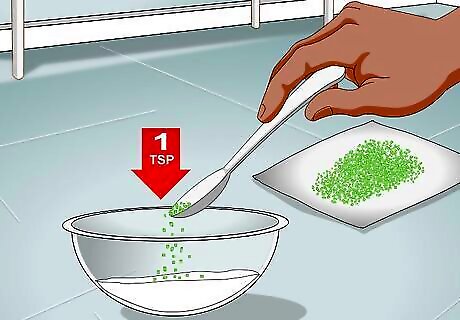
Add 1 teaspoon of dried parsley. This will help freshen your dog's breath as was as neutralize bad odor. If you'd like, you can grind the parsley up further using an herb grinder, coffee grinder, or a mortar and pestle. If you choose to use a coffee grinder, make sure that it is clean. It would be better to use a grinder that is dedicated to herbs, as coffee is toxic to dogs.
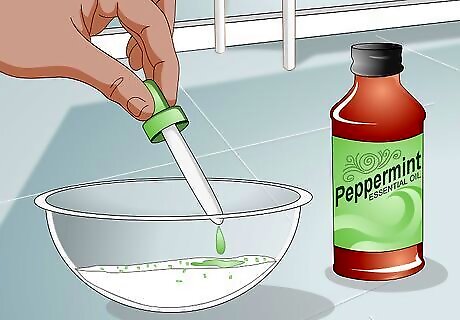
Consider adding 2 drops of peppermint essential oil. While not completely necessary, this oil will help further freshen up your dog's breath. Use only pure, alcohol-free essential oil. It must not be blended with alcohols or carrier oils.
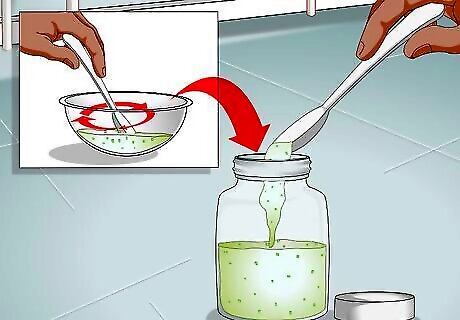
Stir everything together, then scoop into a small, glass jar with a tight-fitting lid. The jar must be made out of glass, as plastic may leach chemicals into the toothpaste over time.
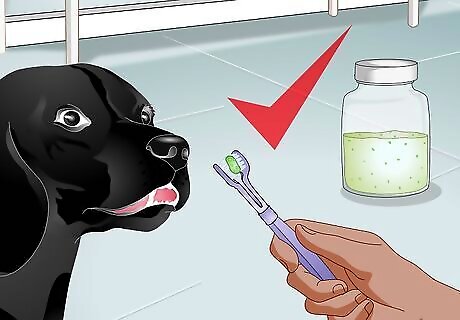
Use the toothpaste with care. Baking soda is great at cleaning teeth, but it can cause your dog's stomach to become upset if he or she eats it. Use only small amounts when brushing your dog's teeth, and always keep the jar tightly-closed and out of his or her reach to prevent any "snacking."
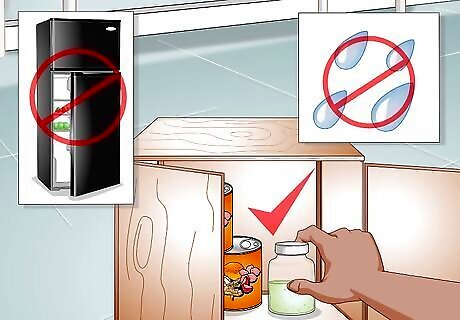
Store the toothpaste in a cool, dry place. Avoid keeping it in the refrigerator, or it might harden too much. If the toothpaste does become too hard, you can soften it up a little by placing the jar into a bowl filled with hot water for a few minutes.



















Comments
0 comment